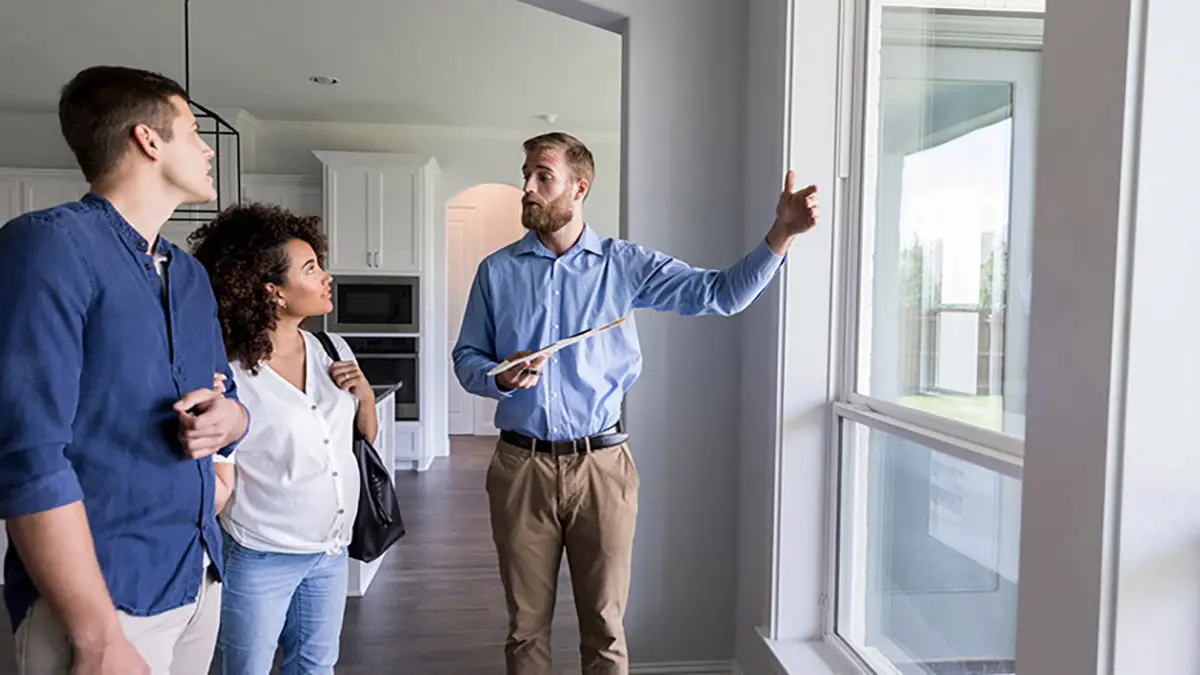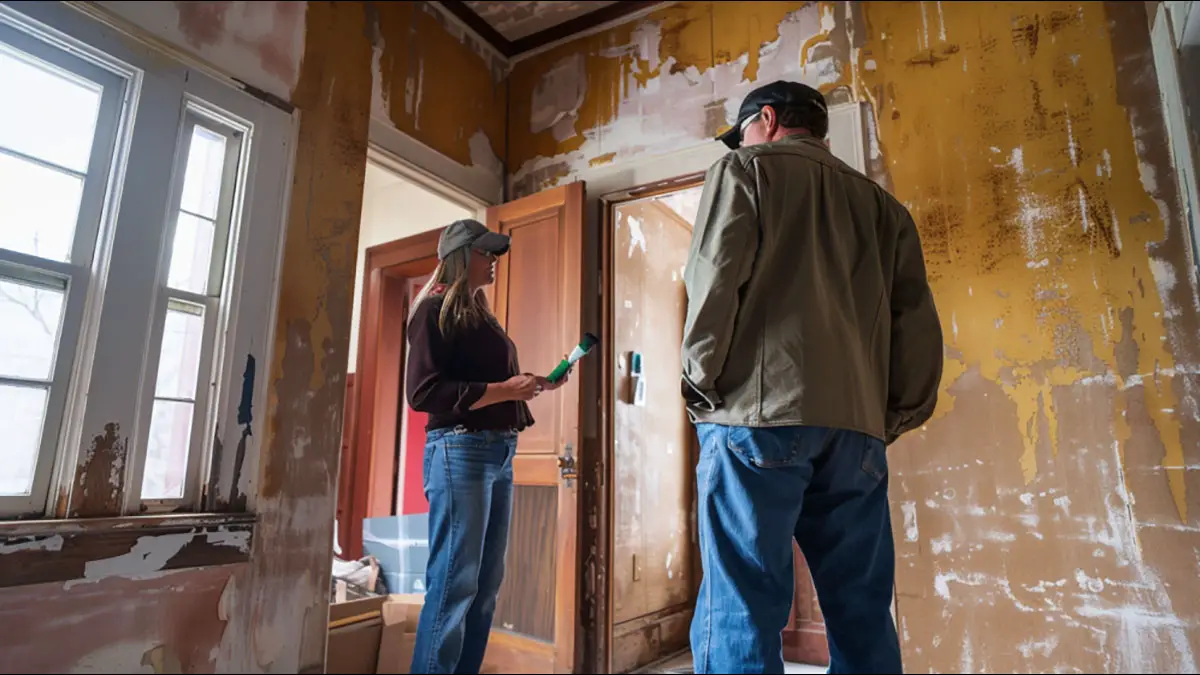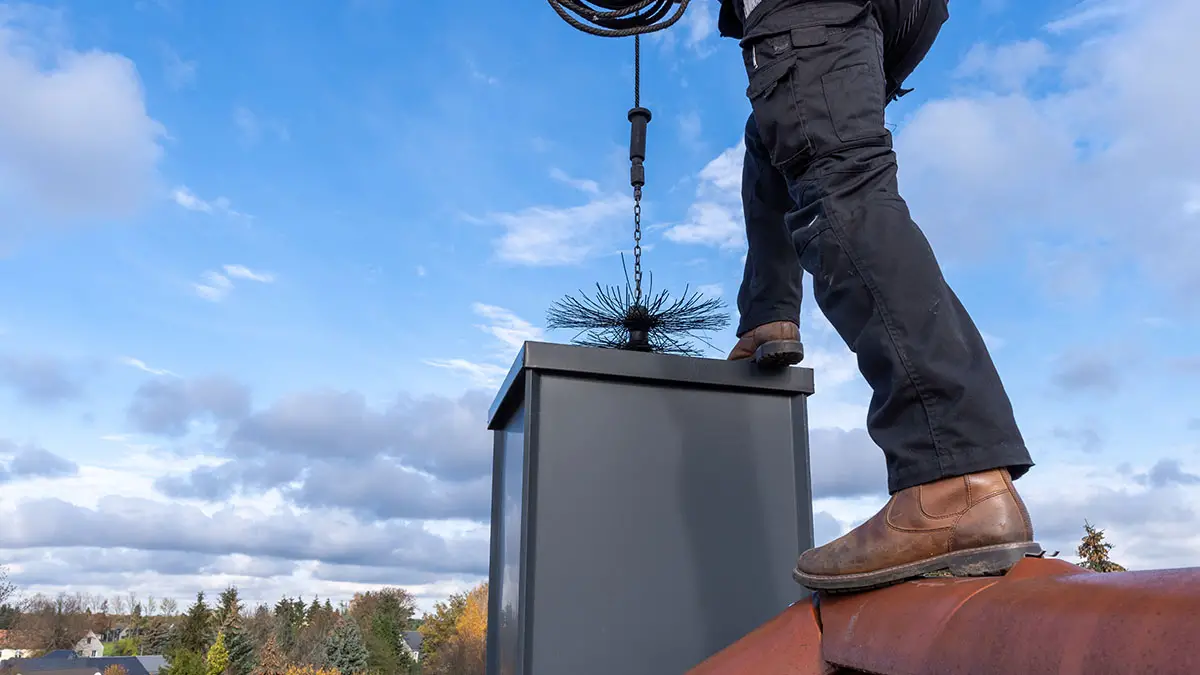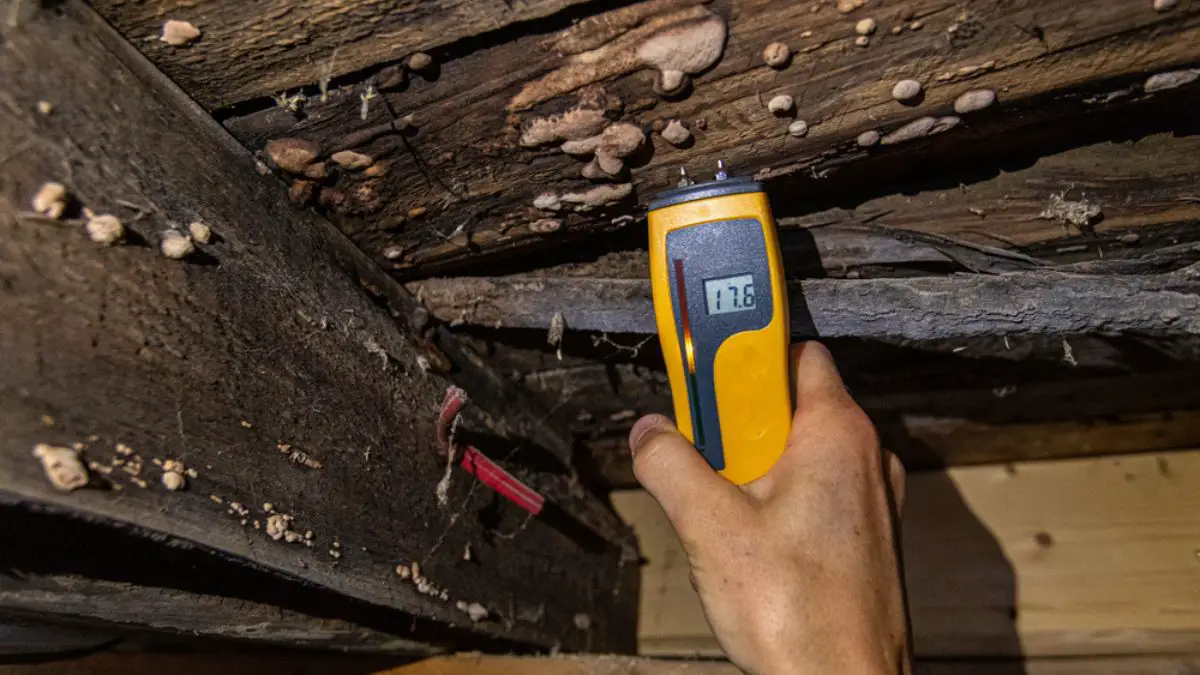If you’re planning to sell your home, you’ll likely need to go through the process of having it inspected. While it might seem like just another hurdle on the way to closing, knowing how to pass a home inspection is crucial for ensuring your sale goes smoothly.
Not only can a failed inspection cost you money and time, but it can also result in potential buyers walking away from the deal altogether.
To pass a professional home inspection, check the roof for damage and ensure proper gutter drainage. Inspect the foundation for cracks and ensure electrical outlets and switches are functioning. Check plumbing fixtures for leaks and test the HVAC system.
A successful home inspection provides peace of mind for both the seller and buyer, as it ensures that there are no major issues with the property that would prevent someone from living in or owning it safely.
Repairing any problems found during an inspection can also increase the value of your home in the eyes of potential buyers and help you get top-dollar for your property. Below, we have 13 home inspection tips for sellers.
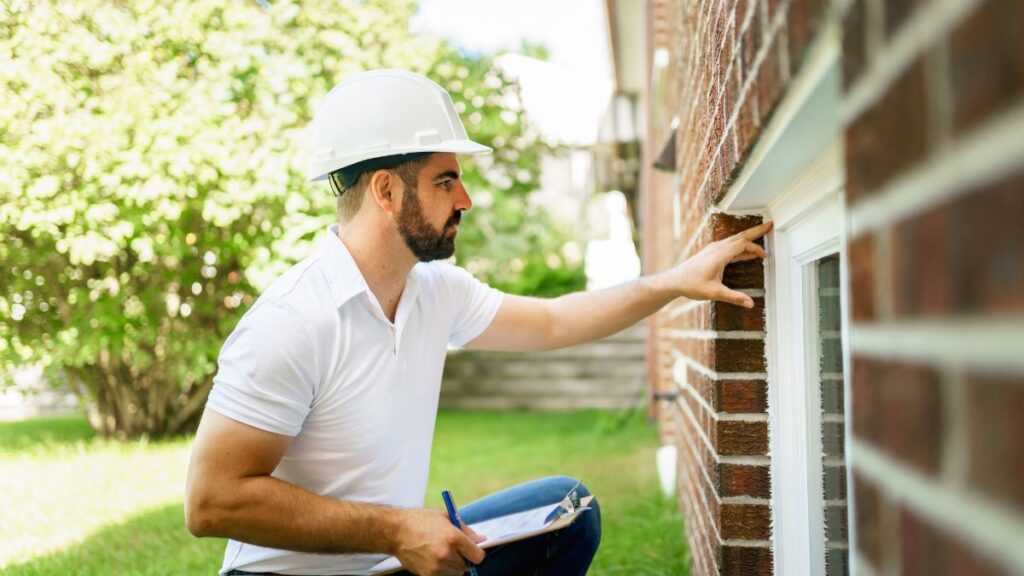
A Brief Overview of What a Home Inspection Entails
Real estate agents use the inspection contingency as a crucial part of the home-buying process. It allows prospective buyers to thoroughly inspect the property and negotiate repairs or adjustments based on the findings.
Typically, the buyer hires a professional home inspector to evaluate the house’s condition, including its structure, systems, and potential issues.
Knowing how to pass a home inspection starts with understanding what a licensed professional inspector looks for when examining a home.
The purpose is to check for defects or issues with major systems or structural elements before finalizing a sale.
Sellers can have a pre-listing inspection to identify and resolve major issues before selling the house.
Evaluating Electrical, Plumbing, Roofing, And Cosmetic Issues
During an inspection, an inspector will thoroughly check everything from the electrical wiring, electrical panels, water heaters, and plumbing fixtures to roofing materials, foundation stability, and potential electrical issues.
Your inspector will also take note of any cosmetic damage, such as peeling paint or cracked tiles. Once complete, they will provide a detailed home inspection report outlining any issues found during their evaluation process.
From there, you can decide whether or not to address these issues before listing your home on the market or negotiating repairs with potential buyers. Passing a home inspection is crucial if you want to sell your house in today’s market.
Note:
Not only does knowing how to pass a home inspection provide peace of mind for buyers and sellers alike, but addressing any problems uncovered during an inspection can also boost your home’s value and make it more attractive to potential buyers.
So, buckle up, and let’s dive into the key components of a successful home inspection!
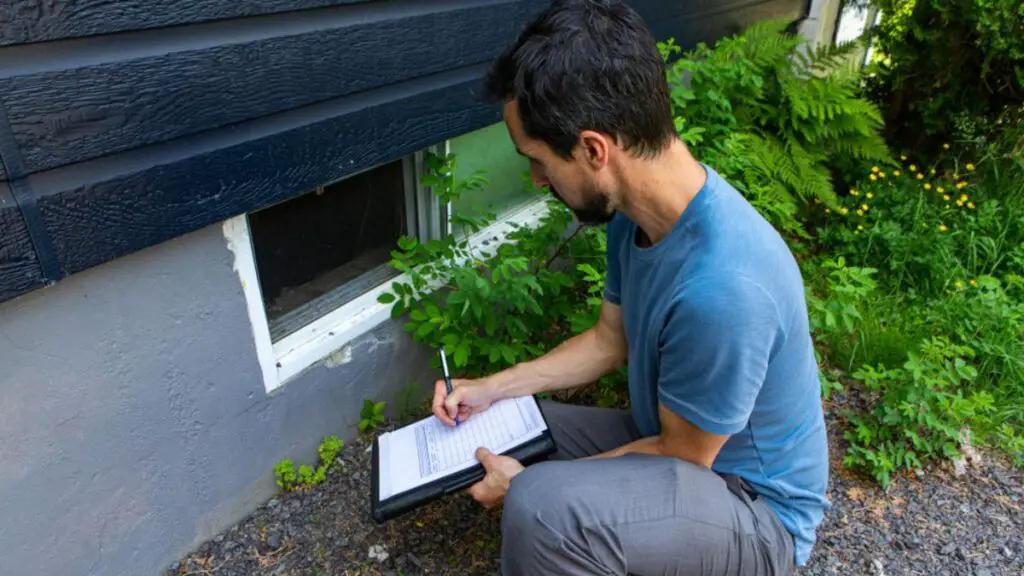
Exterior Inspection
The home’s exterior condition is critical when learning how to pass a home inspection.
Checking The Roof For Damage Or Leaks
When aiming to pass a home inspection, starting with the roof is important, as it is your home’s first defense against the elements.
7 Key Roof Inspection Areas During Home Inspection
- Shingles or Roofing Material
- Flashing
- Gutters and Downspouts
- Roof Structure
- Ventilation
- Skylights
- Chimney
Understanding how to pass a home inspection includes recognizing that a damaged or leaky roof can potentially result in significant issues in the future, underscoring the importance of identifying and addressing any problems at an early stage.
You also want to check for any areas where water may be pooling; this could indicate a low spot in the roof that needs to be addressed. If you have access to your attic, take a
This could include rotting wood, stains, or mold growth. If you notice anything concerning, it’s best to call in a professional roofer or an assessment.
Examining The Foundation For Cracks Or Settling
When preparing for a home inspection, it’s essential not to overlook the foundation, as it represents another critical aspect of your home’s structure that requires careful examination.
Recognizing the significance of a solid foundation in maintaining the integrity of the property is a key aspect of understanding how to pass a home inspection.
Any issues with the foundation, such as cracks or uneven settling, should be addressed promptly to ensure a successful inspection and to uphold the stability and longevity of your home.
Walk around the perimeter of your house and look for any cracks in the foundation; even small ones can indicate settling or shifting that needs to be addressed.
What You Should Know?
You should also examine any visible parts of your foundation (such as near windows) to ensure there are no gaps between it and other structures (like brickwork). Any gaps could allow moisture into your home and cause serious damage over time.
Inspecting Gutters And Downspouts For Proper Drainage
Make sure your gutters are clear of debris and functioning properly. They should be securely attached to your home with no sagging sections and should slope towards downspouts that direct water away from your foundation.
Test each downspout by running water through it from a hose – you want to ensure it flows freely without obstruction.
If you notice any issues with your gutters or downspouts, get them fixed before the inspection. Poor drainage can lead to water damage and other problems that must be addressed before you can sell your home.
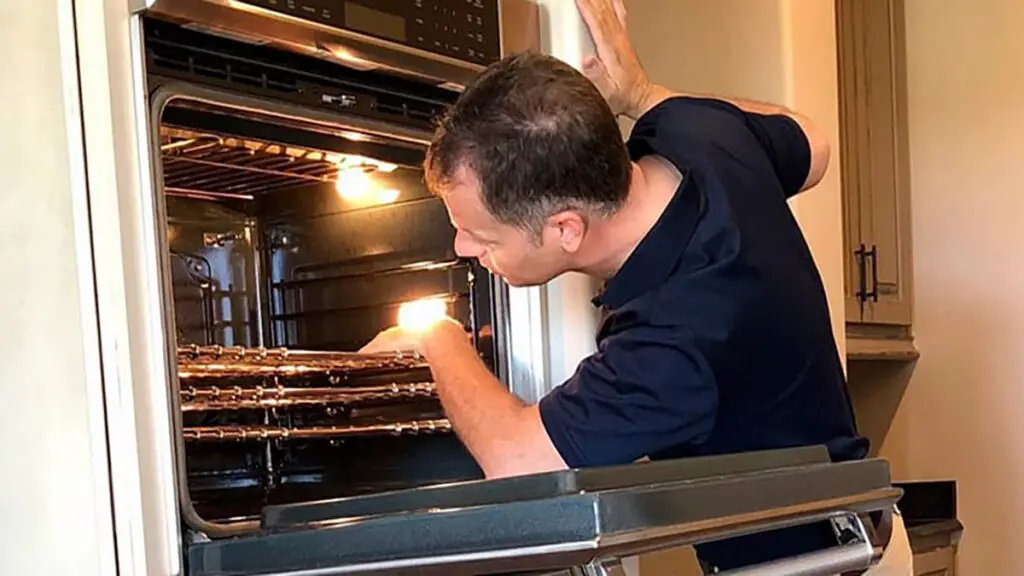
Interior Inspection
The home’s interior condition is critical when learning to pass a home inspection.
Testing All Electrical Outlets And Switches
When understanding how to pass a home inspection, it is vital to recognize the significance of specific components in maintaining a safe and functional home.
Ensuring these components are in good condition is crucial to achieving inspection success.
Faulty electrical wiring can lead to dangerous situations such as fires or electrocution, so checking every outlet and switch in the house is important. Start by visually inspecting each outlet and switch for any signs of damage or wear.
Then, use a tester to ensure each outlet is grounded and wired correctly. Calling an electrician before the inspector arrives is best if any issues are found.
Checking Plumbing Fixtures For Leaks Or Water Damage
Next on the list of interior checks is inspecting the plumbing fixtures throughout the house. Start with faucets and showerheads, checking them for proper water flow and leakage.
If there are any leaks or signs of water damage, fix them before the inspector arrives.
Also, check under sinks for any signs of leaks or mold growth. A leaking pipe may need a simple tightening of a fitting, but if there are multiple problems, you should call a plumber right away.
Examining The HVAC System to Ensure It Is Functioning Properly
Don’t forget about your heating and cooling system! Knowing how to pass a home inspection involves recognizing the significance of a properly functioning HVAC system in providing comfort and efficiency to the home.
A professional should examine The HVAC system at least once a year so that any maintenance needs can be addressed before inspection day.
During the internal inspection of your home, it is essential to pay attention to the air filters around your air conditioning unit(s). Ensuring these filters are clean and clear from debris buildup is crucial to maintain proper airflow.
Neglecting the air filters can lead to restricted airflow, which puts increased pressure on the motors and can eventually lead to failure.
Conducting a pre-listing inspection to prepare your home for sale can help you proactively identify any issues before the inspector discovers them.
By taking important steps such as testing every electrical outlet and switch, checking each faucet and showerhead for proper functioning, and scheduling annual HVAC maintenance checks, you can greatly increase the likelihood of your home passing the inspection with flying colors.
Fix These 7 Safety Issues In Your Home
Safety issues identified during a home inspection can vary depending on the property’s condition.
- Electrical Hazards: This can include faulty wiring, outdated electrical panels, inadequate grounding, exposed wires, or unsafe electrical practices.
- Structural issues: These can include foundation problems, exterior walls, roof, or other structural components of the home.
- Plumbing issues: Leaking pipes, faulty fixtures, inadequate water pressure, or improperly installed plumbing systems can lead to water damage, mold growth, and potential health hazards.
- Fire safety concerns: Inspectors typically check for functional smoke detectors, proper fire separation between living spaces and garages, and the presence of fire extinguishers or other fire safety equipment.
- HVAC system problems: Malfunctioning heating, ventilation, and air conditioning systems can result in inadequate heating or cooling, poor indoor air quality, or potential carbon monoxide leaks.
- Trip hazards: Inspectors may identify hazards such as loose handrails, uneven flooring, or improperly installed stairs that could pose a risk of falls.
- Presence of hazardous materials: This includes asbestos, lead-based paint, radon gas, or other harmful substances that could be a health hazard if not correctly handled or remediated.
Kitchen Inspection
The kitchen condition is critical when learning how to pass a home inspection.
Checking Appliances To Make Sure They Are In Working Order
The kitchen is one of the most important rooms in your home, and it’s no wonder that it is a major factor in a house inspection.
Maintaining functional appliances throughout the property is key to knowing how to pass a home inspection.
Inspectors will inspect all appliances to ensure they are in proper working order. This includes your stove, oven, microwave, dishwasher, and refrigerator.
To prepare for the inspection, ensure all appliances are clean and free from built-up debris or dirt. Turn on each appliance and test them individually to ensure everything functions properly.
Note:
If you notice any issues with an appliance such as a flickering light or unusual smells coming from it, it’s best to address these issues before the inspection. That way you can avoid having the inspector note any problems on the home inspection checklist.
Inspecting Cabinets And Countertops For Any Damage
Your kitchen cabinets and countertops are key elements that will be checked during a home inspection. Inspectors will look for signs of damage or wear and tear that may need attention before selling your home.
All cabinet doors open easily and close tightly without loose screws or significant damage. Check the plumbing under the sink to see if there has been any water damage from leaks or other issues, such as mold growth.
Inspectors will also scrutinize every inch of your countertops, so ensure they are clean and clutter-free when you schedule an inspection.
Check carefully for cracks or chips on your countertop surfaces- even minor issues can be noted by inspectors, so take action promptly if any issues are detected.
Understanding how to pass a home inspection involves recognizing the significance of presenting a well-maintained and visually appealing property, which includes considering the condition of cabinets and countertops.
Bathroom Inspection
The bathroom condition is critical when learning how to pass a home inspection.
Checking For Proper Functioning Fixtures
As you go through the home inspection process, giving special attention to the bathrooms is important.
Start by ensuring all fixtures work properly, including toilets, plumbing under sinks, and showers/bathtubs. Please turn on the faucets and let them run for a few minutes to be sure the water comes out with good pressure.
Flush the toilets several times to ensure they don’t clog or overflow. Check that the showerhead produces a steady stream of water and that there are no signs of leaks.
If any fixtures need fixing or replacing, it’s best to take care of them before the home inspection. A professional plumber can help repair any problems you may find.
Signs Of Water Damage
Ensuring the maintenance of clean and fully functional bathrooms becomes crucial to knowing how to pass a home inspection. One of the biggest concerns in bathrooms is water damage.
Water damage can lead to mold growth and even structural issues if left unchecked. Check for any signs of water damage around all bathroom fixtures.
Check beneath sinks and around baseboards for signs of discoloration or warping from moisture. Look for peeling paint or wallpaper at ceiling corners where excess humidity can cause damage over time.
Inspect caulking around tubs and showers for cracks or gaps where moisture can seep in behind tile walls. If you find any signs of water damage, it’s important to address them as quickly as possible by a professional contractor specializing in restoration work.
Keep Your Bathrooms Well-Maintained
Bathrooms are high-traffic areas in any home, requiring regular maintenance to keep them functioning properly.
You can minimize the issues found during your home inspection by doing routine maintenance tasks like cleaning drains and replacing leaky faucets or worn-out toilet flappers.
To successfully pass a home inspection, it is crucial to understand the significance of proactive maintenance in upholding the overall condition of your property. This knowledge forms the foundation of knowing how to pass a home inspection.
Take the time to thoroughly inspect your bathrooms and make any necessary repairs before the home inspector arrives. Not only will this help you pass the inspection, but it will also give potential buyers peace of mind that they are purchasing a well-maintained home.
What You Need To Consider?
Part of knowing how to pass a home inspection includes appreciating the importance of maintaining clean and functional bathrooms. Remember, a little bit of prevention and maintenance can go a long way in keeping your bathrooms in top condition.
Attic and Basement Inspection
The attic and basement condition is critical when learning how to pass a home inspection.
Examining Insulation For Energy Efficiency Standards
When it comes to home insulation, many homeowners don’t realize that they may be losing a lot of energy and money from their attic and basement.
To ensure your insulation is up to code, it’s important to inspect these areas thoroughly. In the attic, look for signs of inadequate or damaged insulation.
Check for any gaps or spaces in the insulation where air could leak in or out. If you’re unsure about the quality of your attic insulation, consider hiring a professional home inspector to assess the area and make recommendations.
The basement is also an important area for home insulation. As part of knowing how to pass a home inspection, it is crucial to check for any signs of moisture damage or mold growth on the walls and ceilings of the basement.
Inspect pipes and ducts that run through the area – are they properly insulated? If not, it may be time to invest in insulating materials that will help keep your home warm in the winter and cool in the summer.
Checking For Signs Of Pests Or Mold
Pests like rodents, termites, and squirrels can cause serious damage to a home’s structure if left unchecked. In addition, mold growth can contribute to health issues like respiratory problems over time.
That’s why checking for potential pest problems during a home inspection is always important. Look for signs of pest damage in the attic and basement areas, such as chewed wires or woodwork.
Check corners and crevices where pests might hide out and around windowsills where outside critters might sneak inside. Mold growth can be another concern when inspecting these areas.
Look for visible mold growth on walls and ceilings and any musty smells suggesting mold could be nearby.
When you identify any potential pest or mold issues during an inspection, consider contacting a professional to help you assess the situation and determine the best course of action.
Importance of Addressing Inspection Issues
The average cost of additional inspections during a real estate transaction, including official inspections, can depend on various factors outlined in the purchase agreement and the selling process, and it is important to address any inspection issues that may arise.
Related Reading: 21 Things That Fail a Home Inspection
How to Pass a Home Inspection FAQs
You will have many questions when learning how to pass a home inspection. These are some of the questions we frequently hear.
What are the biggest red flags in a home inspection?
The biggest red flags in a home inspection include structural issues, water damage/mold, faulty electrical systems, plumbing issues, and HVAC deficiencies. These issues can indicate potential costly repairs or safety concerns that affect the property’s value and livability.
What do you say to an inspector?
During a home inspection, it is crucial to maintain a cooperative and respectful demeanor toward the inspector. Provide truthful answers to any questions they ask and offer relevant information about the property. Also, actively engage with the inspection process by asking questions and seeking clarification regarding any concerns or findings.
Do home inspectors always find something wrong?
It is common for qualified home inspectors to discover issues during an inspection. Very few homes are completely flawless, and inspectors are trained to identify potential major issues or areas of concern.
What’s not included in a home inspection?
A standard home inspection usually excludes swimming pools, septic systems, well systems, geological conditions, pest inspections, environmental hazards, and specialized systems like home security or intercom systems.
Related Reading: 26 Things Home Inspectors Are Not Allowed To Do



